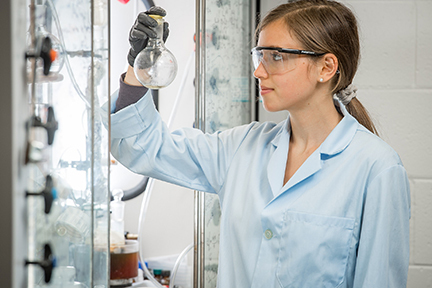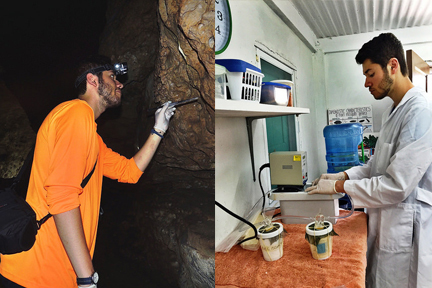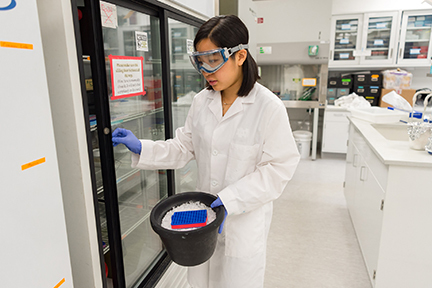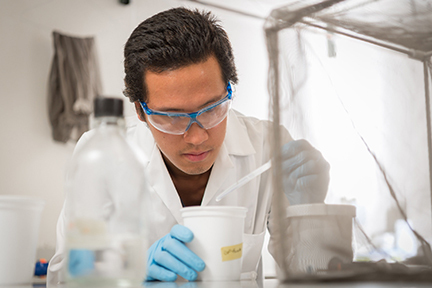 Tiffany Toni
Tiffany Toni
Each summer, the College of Science Summer Undergraduate Research Fellowships (SURF), provide opportunities for Notre Dame science sophomores and juniors to engage in research. With support from donors, and in collaboration with the Center for Undergraduate Scholarly Engagement, Indiana University School of Medicine–South Bend, and Glynn Family Honors program, students participate in full-time research for 9 to 10 weeks and are mentored by College of Science faculty or international collaborators at an institute abroad. More than 60 students participated this summer. Four of whom are featured below.
Like all students who participate in SURF, Tiffany Toni, a student in the Department of Chemistry and Biochemistry, is grateful to the donors who make SURF possible. She says of her research experience this past summer, under the mentorship of Associate Professor of Brandon Ashfeld, “It allowed me the chance to focus primarily on my research, which unfortunately is not possible during the school year. I was able to make a lot of progress in the research, as well as developing my own skills as a chemist.”
 Robert Wozniak in Belize
Robert Wozniak in Belize
Under the advisement of Research Associate Professors John Grieco and Nicole Achee, Robert Wozniak traveled to Belize to complete his research experience. There they addressed several unanswered questions regarding the current preventative measures used to combat Chagas disease. His team searched for Triatoma dimidiata (commonly known as kissing bugs), one of the transmission vectors of Chagas disease. They set odorant bait traps to determine if the odorants could successfully stimulate the bugs’ olfactory system and improve capture efficiency. They also explored various caves across Belize to collect wild type T. dimidiata. Wozniak says, “we then investigated the repurposing of a chemotherapeutic agent, miltefosine, for Chagas disease treatment to determine its potency against the parasite and transmission vector. The final part of our research was to find how new treatment methods, such as miltefosine, could potentially be implemented into the Belizean health system by interviewing various health professionals, including pharmacists, physicians, and members of the Belize Ministry of Health and Department of Health Services.”
 Xiaoyu “Lily” Yu
Xiaoyu “Lily” Yu
Xiaoyu Yu studied mosquito species and behaviors with the goal being to prevent malaria. Her team in Neil Lobo’s laboratory worked on 330 mosquito samples from Democratic Republic of Congo (DRC). With dissection and sequencing, they were able to identify the species of the mosquitoes on a molecular level. Her team found four new species in the process. She says of her experience, “I had a great time, everyone working in the lab was really helpful—they were always there for me when I had questions or needed trouble shooting. I am studying abroad this semester and I will definitely go back to the Lobo lab when I return next semester.”
Anthony Nguyen worked under the guidance of Assistant Professor Zainulabeuddin Syed researching the influence of endogenous mosquito microbiota on circadian rhythm behavior. He says, “I enjoyed being able to work independently on the day to day operations. I greatly enjoyed my experience this summer and would definitely recommend COS-SURF to anybody interested in research.”
 Anthony Nguyen
Anthony Nguyen
Originally published by at science.nd.edu on November 04, 2016.